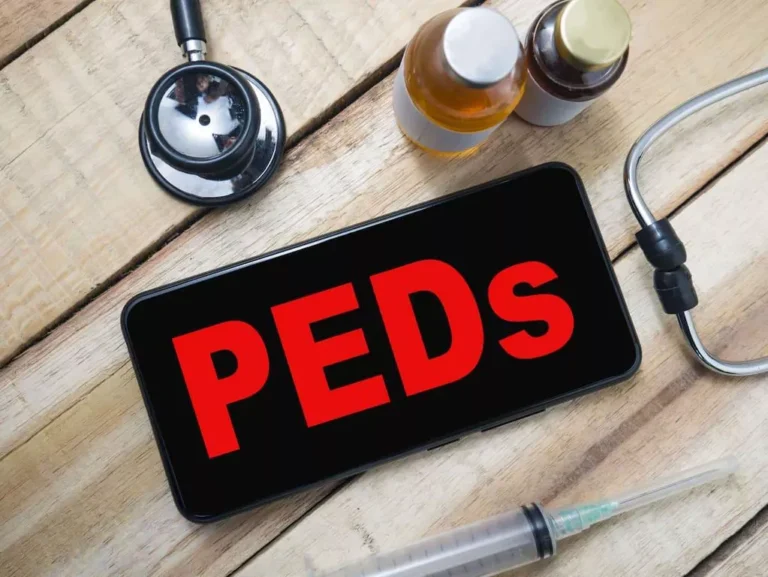
Antihistamines can help to reduce the intensity and severity of the symptoms alcohol intolerance causes. While this over-the-counter option can make you feel better, it is not actually treating the underlying problem but just masking it. It is far better to avoid alcohol altogether if you have alcohol intolerance instead of solely treating the symptoms.
Skin prick test
- While this over-the-counter option can make you feel better, it is not actually treating the underlying problem but just masking it.
- The most common involves two enzymes, known as alcohol dehydrogenase (ADH) and alcohol dehydrogenase 2 (ADH2).
- Long COVID refers to persistent symptoms that occur more than three weeks after the initial COVID-19 infection.
- Finally, it examines how alcohol tolerance changes over time and offers support and guidance on alcohol use.
- While drinking alcohol is the most common trigger, other actions, like using cough syrup containing alcohol or alcohol-based hand sanitizer, may also trigger these symptoms.
It’s also found in many foods and beverages, especially fermented products. For example, aged cheese, smoked meats, sauerkraut, wine, and beer tend to be high in histamines. At the first signs and symptoms of a severe allergic what causes alcohol intolerance reaction, it’s essential to use epinephrine and go to the nearest emergency department for immediate follow-up care. Some health conditions can also cause alcohol intolerance, while others can cause increased alcohol sensitivity.
- Metronidazole (Flagyl) and disulfiram (Antabuse) are the most common medications that cause this.
- Alcohol intolerance occurs when your body doesn’t have the proper enzymes to break down (metabolize) the toxins in alcohol.
- True alcohol allergy (versus an allergic reaction to ingredients in alcoholic drinks) is very rare.
- Currently, there is no cure for alcohol intolerance, but understanding and managing the condition can significantly reduce its impact.
- Your body uses an enzyme called aldehyde dehydrogenase, or ALDH2, to break down acetaldehyde.
Skin Rash/Itchy Skin
- Because it is caused by your body’s inability to process alcohol correctly, drinking slowly and giving yourself time between each drink can lessen its severity.
- People often confuse alcohol intolerance and alcohol allergy, but they aren’t the same condition.
- Because of this, distilled spirits are generally safe for people with yeast allergies.
- Alcohol intolerance is caused by a genetic condition in which the body can’t break down alcohol efficiently.
- This involves the supervised consumption of a controlled amount of alcohol to observe the individual’s reaction.
- It’s important for people with alcohol intolerance to be especially mindful of their alcohol consumption.
Alcohol intolerance is a genetic metabolic disorder, which means it’s passed down from your parents. Even if neither parent exhibits symptoms, they can still transmit a mutated gene that leads to this condition. The intestinal absorption of xylitol is almost totally limited to the mechanism of permeation which applies to all strongly hydrophilic substances. The driving force behind free diffusion of xylitol is the direction of the concentration gradient between the intestinal lumen and the outside compartment 1, 3, 4, 8–14, 19. These papers have concluded, among other things, that in case facilitated diffusion of xylitol is involved, the transport system must exert very low affinity to xylitol. In free diffusion, the uptake of the substance from the intestinal lumen takes place because of a simple physicochemical process through the hydrophobic pores in the membrane.
Symptoms of Alcohol Intolerance
Combining alcohol with certain medications also can cause reactions. Alcohol intolerance is an immediate and unpleasant reaction to consuming alcohol. It typically occurs because the body lacks the ability to properly break down alcohol or one of its constituents. If you’re allergic to a specific ingredient in certain alcoholic drinks, switching to a different alcoholic drink may be an option.

Because it is caused by your body’s inability to process alcohol correctly, drinking slowly and giving yourself time between each drink can lessen its severity. Drinking when you have alcohol intolerance does increase your risk of cancer, and you should consider trying to completely stop drinking alcohol instead of just moderating it. This is typically more than just feeling queasy, but severe abdominal cramping and retching that occurs very soon after drinking alcohol. This nausea and vomiting will differ from vomiting that can happen when drinking in that it will be very soon after drinking, occurring suddenly and intensely.
- The alcohol flush reaction is less common in people of other ethnicities, but it still affects up to eight percent of the world population overall, or about 560 million people.
- If your body doesn’t produce enough active DAO, you may react to histamine in foods and beverages.
- Lactitol can cause flatulence and osmotic diarrhea in some individuals, since most subjects lack the necessary β-galactosidase enzyme in the upper gastrointestinal tract.
- For example, potential symptoms include red and itchy skin, nasal congestion, shortness of breath, abdominal pain, and diarrhea.
- Hence the consumption of d-glucitol and d-mannitol generates far more severe gastrointestinal disturbances than xylitol.
Moderating Your Drinking

If you have a true alcohol allergy, even small amounts of alcohol can cause symptoms. People often call alcohol intolerance an alcohol allergy, and vice versa. People who have a true alcohol allergy should avoid drinking alcohol entirely. For those with genetically-caused alcohol intolerance, the most straightforward approach is to avoid alcohol altogether, preventing the onset of symptoms. Because acetaldehyde is toxic and carcinogenic (causing cancer), avoiding alcohol altogether is the only option that medical professionals will recommend. In contrast, alcohol intolerance is a metabolic issue related to the breakdown of https://ecosoberhouse.com/article/does-alcohol-weaken-our-immune-system/ alcohol in the body.


Hodgkin’s lymphoma is a type of cancer that can affect your lymphatic system. The symptoms of histamine intolerance are similar to an allergic reaction. For example, potential symptoms include red and itchy skin, nasal congestion, shortness of breath, abdominal pain, and diarrhea.
